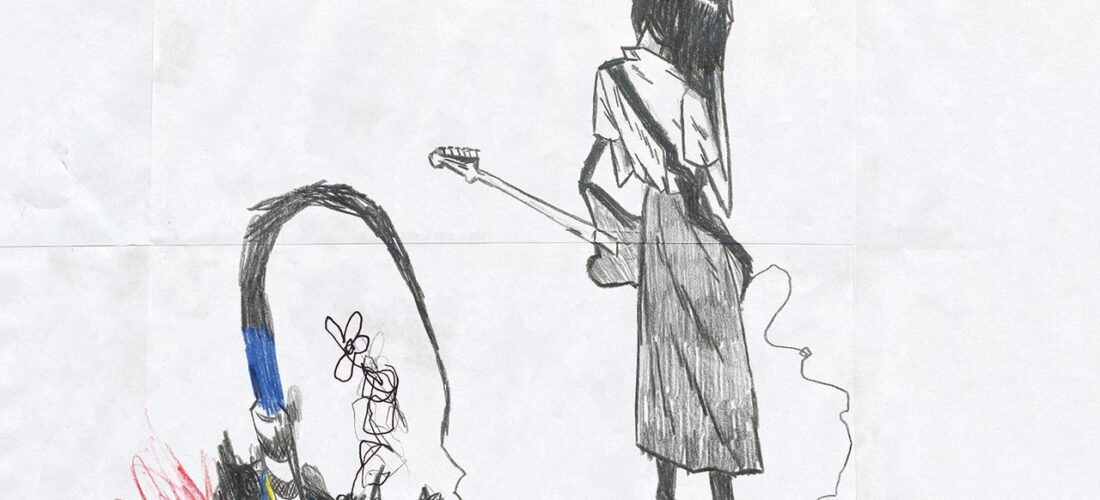In 1995, Sonic Youth, then 14 years into their career, and on the cusp of a mainstream breakthrough, released a new album, Washing Machine, that closed with a nearly 20-minute song, “The Diamond Sea.” Much of it is a freeform jam of slowly unfurling guitar noise. Seemingly aware of the unpalatableness of a double-digit running time largely given over to feedback, the band released a radio edit of “Diamond Sea,” a fine enough if relatively neutered four-minute version that cuts out the squall. Its purpose was served, to a limit: The song did chart—though never higher than No. 23. Critical success abounded, but the mass market never quite caught on.
By the time the members of the Los Angeles band julie were born (about halfway between the release of “Diamond Sea” and Sonic Youth’s dissolution in 2011), the brief promise of a mainstream moment for difficult rock music, in the wake of Nirvana’s success, was long in the rearview. It was now the Obama years. Boom time for Coldplay fans, not so much dissonance enthusiasts.
But enter Trump, and dark clouds came to pass, as did middle-school graduation; in 2019, as high schoolers, guitarist/vocalist Keyan Pourzand, bassist/vocalist Alexandria Elizabeth, and drummer Dillon Lee, formed julie. The band’s first single, “flutter,” was released in 2020, a year in which talented young devotees of experimental rock music had plenty of reason to shrink from the known world and swath themselves in oceanic swaths of reverb.
julie emerged fully formed on “flutter,” a tightly wound grunge-pop rager with Pourzand and Elizabeth trading vocals, both pleasingly apathetic. That song, like most of the rest of their subsequent songs, was propelled by a totally ballistic drum performance by Lee. They were influenced by Sonic Youth, clearly, but they had little interest in that band’s atonal wandering. Julie’s power was controlled out of the gate.
Over the next three years, the group released a handful of EPs and singles, experimenting with slight shifts in sound. One song might skew more tortured emo, another more triumphant shoegaze. The brusque sheen of the Big Muff pedal is ever present, but they never overindulge in fuzzed-out theatrics. They never noodle too long. Only one song on the band’s debut album, my anti-aircraft friend, clocks in at over five minutes—and then only by three seconds. It seems that in a generation (or two) since the heyday of their preferred breed of experimental rock music, julie have mastered the task of making songs that feel sprawling and massive, but which in reality bloom and dissolve in short order. You can fit a lot of julie songs into one “Diamond Sea.” No radio edit needed.
